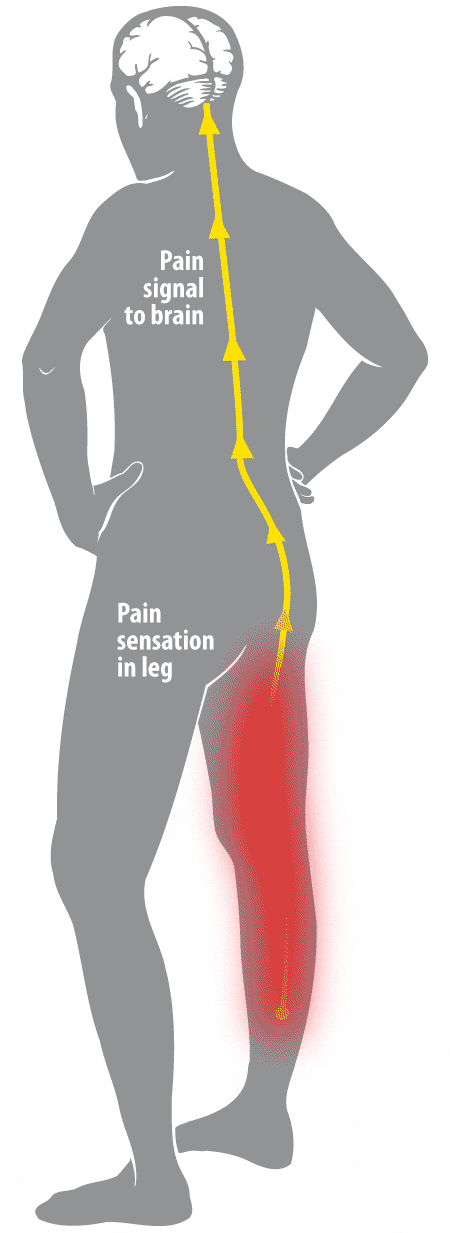NEUROMODULATION FOR BACK PAIN
Spinal cord stimulators are considered pain modulators, meaning they change the way your brain perceives a pain signal. They can be considered before or after surgical interventions. A spinal cord stimulator is a generator which is surgically placed under your skin. This sends a mild electric current to your spinal cord. Some patients describe it as “a TENS unit for the spine.”

CHRONIC BACK WITH OR WITHOUT LEG PAIN
- Lumbar radiculopathy: Low back and leg pain
- Failed back surgery syndrome: persistent pain despite surgical intervention
- Complex regional pain syndrome (previously called Reflex Sympathetic Dystrophy, or RSD): a progressive disease with constant debilitating pain
- Arachnoiditis: inflammation and scarring of the protective lining of the spinal nerves.
- Other: stump pain, angina, peripheral vascular disease, multiple sclerosis, or spinal cord injury. We can also use this for pains in other areas of your body. Please consult with your physician.
THREE PARTS TO THE SPINAL CORD STIMULATOR DEVICE (2)

Battery 
Lead 
Remote Control
- Generator: creates electrical impulses that get transmitted to the leads, which help reduce your pain. This gets implanted into your buttock only if you have a successful trial. The battery is rechargable
- Leads: wires are placed near your spinal cord to reprogram your pain
- Remote control: to give you control over managing your device
2 STEPS
- Trial period – 1 week to see if this is the right device for you. If it works, then we do an implant; if not, nothing stays in your body.
- Permanent Implant
COMPLICATIONS
General complications of any surgery include bleeding, infection, blood clots, and reactions to anesthesia. Specific to spinal cord stimulator:
- Increased pain
- Epidural hemorrhage, hematoma, infection, spinal cord compression, cerbrospinal fluid leak. Seroma at implant site
- Hardware issues: lead migration, battery failure/leakage/migration, allergic response to hardware
- Extremely rare: Paralysis, weakness
GOOD CANDIDATES FOR SPINAL CORD STIMULATORS
- Conservative therapies have failed
- You do not have an upcoming surgery
- You have no issues with untreated depression or addiction
- You have had a successful SCS trial
REFERENCES